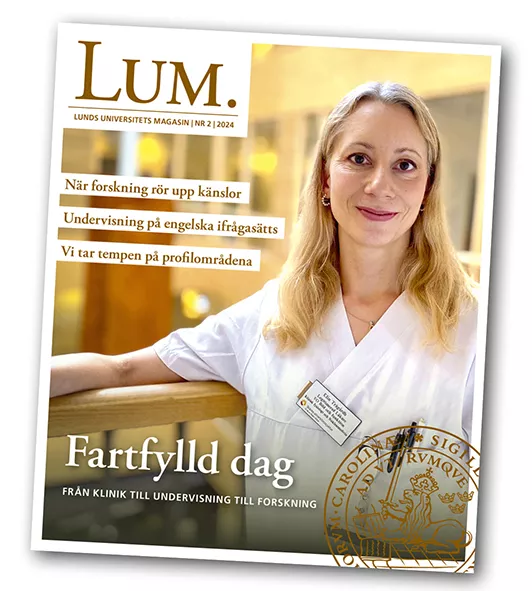He is the chair of Lund University's own Research Misconduct Review Board, the board that is to continue to investigate "other deviations" from good research practice. The new act defines misconduct with three factors: falsification, fabrication and plagiarism. Other issues, such as problems concerning authorship, or the unauthorised use of another person's research data are to be processed locally, as before.
"Often, one and the same case concerns both misconduct and other deviations from good research practice", says Göran Sandberg who suspects there may be some future confusion around who is to investigate what.
The new act a consequence of the Macchiarini affair
Policy officer Magnus Gudmundsson is assisting the board and is also the secretary of Lund University's Ethics Council, of which Bo Ahrén is chair. All three agree it is good to have standardised national regulations on the issue of defining misconduct and that the act is particularly important for those higher education institutions that currently lack a functioning body to handle cases of suspected research misconduct.
"We, however, have always been at the forefront with our board", says Bo Ahrén.
He sees the new act as a direct consequence of the Macchiarini affair at Karolinska Institutet and says it is extremely important that society's trust in research be preserved.
"If we lose that, we will not receive any money and then there will be no research", says Bo Ahrén.
The reports of misconduct has increased
Magnus Gudmundsson explains that the reports of research misconduct have increased, particularly since 2015. Since 2010, the board has handled approximately 40 cases – of which 35 were after 2015. Of the 40 cases, the vice-chancellor established misconduct in six of them, involving nine people. Twelve cases have been initiated so far this year.
"We would have liked to have finalised them and to have had a longer handover time, but it is the way it is now and we will continue to work as usual until the New Year", says Magnus Gudmundsson.
However, the new act states that universities are to assist the central board, so there will still be quite a lot of work locally on future cases of misconduct. Reports may be made directly to the new board or via the University's board. If a case is assessed at the University as relating to misconduct, we will pass it on, and if the central board receives reports that they do not believe relate to misconduct, they will send them back to the University.
The increase in reports may be due to several factors. Bo Ahrén says it is to be expected given that the amount of research is increasing. Göran Sandberg does not believe that cheating itself is more widespread than before, but that researchers are more inclined to report it.
An increasing number of doctoral students among those who are reported
"Misconduct is on the agenda and the competition for grants is intensifying, which may mean that those who are not successful and have some kind of scientific conflict with colleagues make reports."
"Many such conflicts would have been avoidable if people talked to each other a bit more", says Göran Sandberg.
Magnus Gudmundsson says there is an increasing number of doctoral students among those making reports and those who are reported.
The disciplinary measures depends on the university
Despite the fact that the central board will be the one reviewing the cases of suspected research misconduct, it is still the higher education institutions that will decide on the consequences. Therefore, the national definition of misconduct stops at the definition, and the disciplinary measures will then depend on how the higher education institution views the misconduct in the individual case.
"Well, yes, that is right, but the consequences are generally worse than simply being found guilty", says Bo Ahrén. "A researcher who has been found guilty of research misconduct is often judged even more harshly by the research community and, for example, is unlikely to be awarded any grants by the Swedish Research Council in the future." The individual researcher has the prime responsibility of ensuring the research is carried out in accordance with good research practice, while the responsibility of the higher education institution is secondary.
Training in research ethics compulsory in all PhD programmes
However, the new act emphasises the responsibility of higher education institutions to ensure there is a structure in place that promotes good research practice. For example, compulsory training in research ethics, something which was already in place in the PhD programmes in medicine, social sciences and economics at Lund University. This is now being introduced in the PhD programmes at the other faculties as well.
In addition, there is to be a local board that handles other deviations from good research practice as well as an ethics council. In a new development for Lund University, eight research ombudsmen have been appointed – one for each faculty (with the exception of the Faculty of Law and the Joint Faculties of Humanities and Theology that share one) and one for the University's specialised centres (see the names in the fact box). You can contact them for advice concerning any research dilemmas.
The Swedish Ethical Review Authority in Uppsala will act as host for the new board (which at the time of writing was yet to be named) and its members.



